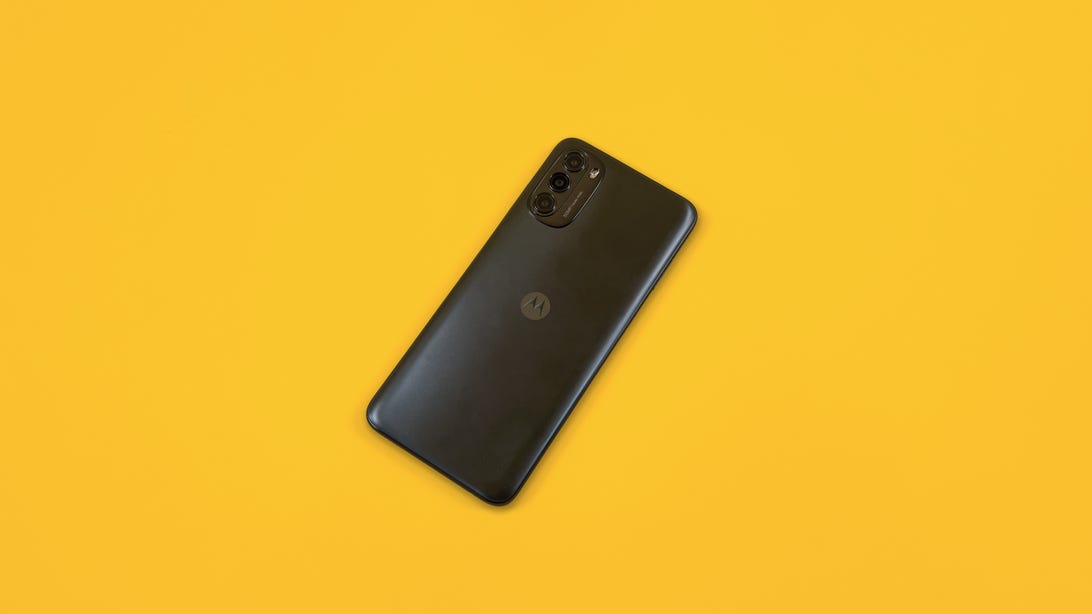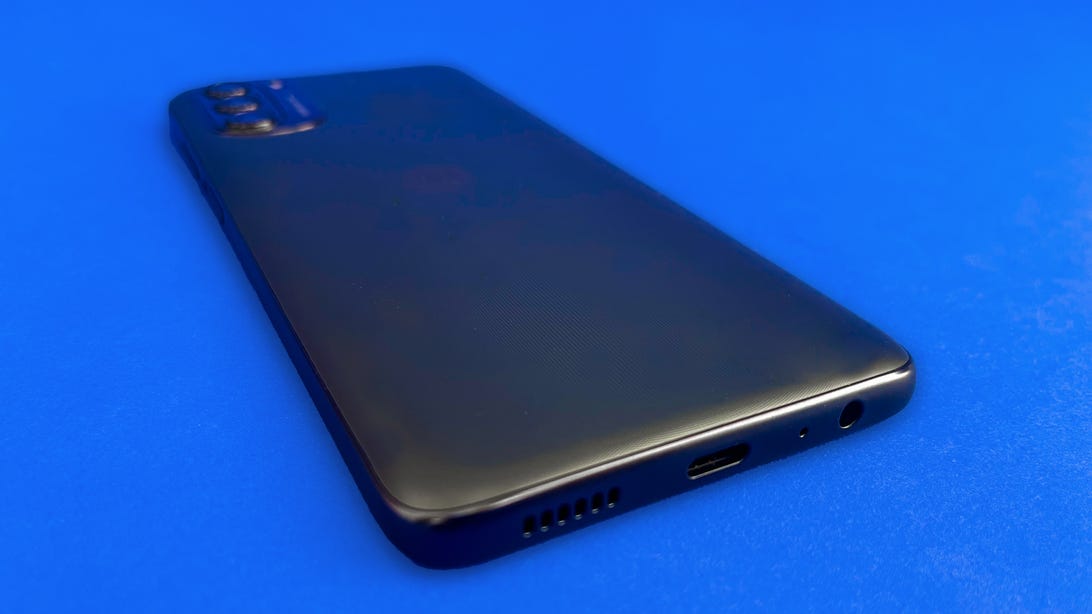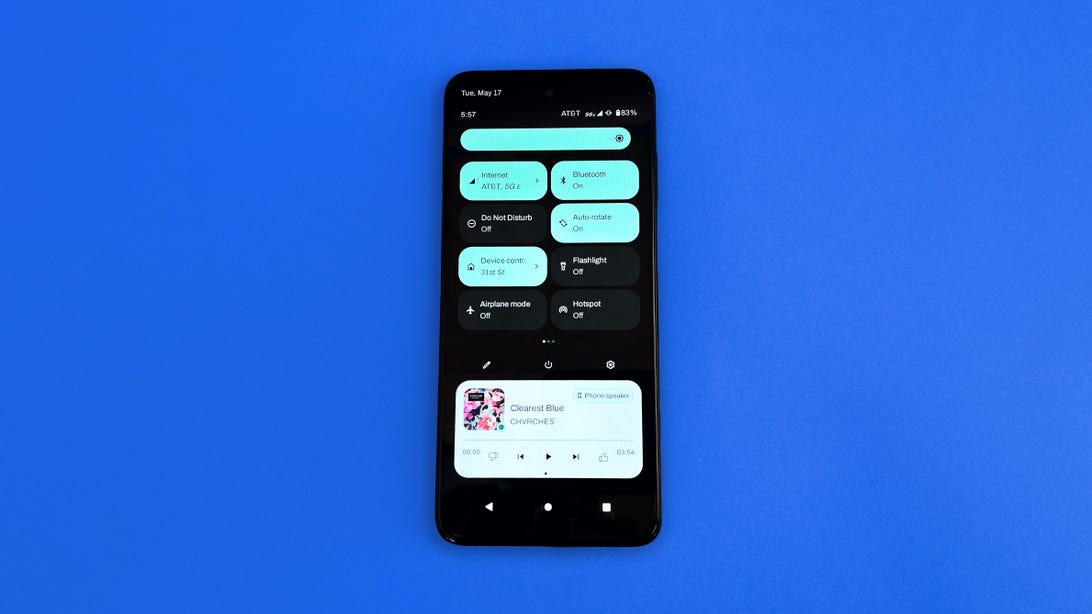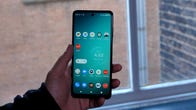The 2022 Moto G 5G is a $400 phone (roughly converting to £320, AU$570) with 256GB of storage space. That might be all you need to know if you’re just looking for an affordable phone that can hold all of your music, videos, apps, games, photos and more. Other phones in this price range don’t even come close in terms of storage space, especially the $429 iPhone SE, which has just 64GB of storage. Plus, the Moto G 5G has 6GB of RAM to boost performance, and you can add even more storage with a microSD card.
Storage space is the clear highlight for this year’s Moto G 5G. But the phone’s 6.5-inch 720p screen with a 90Hz refresh rate, long-lasting 5,000-mAh battery, headphone jack and Android 12 also provide a lot of flexibility and functionality.
But there are a number of noticeable features that aren’t as great as I had hoped. I’m mostly talking about photo quality, which isn’t as good as I expected considering this phone has a 50-megapixel camera.
Post Contents
Like
- 256GB of space for the price is a great value
- Decent phone performance
- Headphone jack
Don’t Like
- Photos and video lack detail
- No NFC
- Short Android update timeline
And there are features missing from the Moto G 5G that — while typical for phones at this price — are increasingly annoying to find omitted. For instance, there’s no NFC for contactless payments, which is particularly concerning as more grocery stores and transit systems move toward this system.
But if $400 is the most you want to pay for a phone, there is a lot to like about the Moto G 5G. Just be sure to keep your expectations in check. You might even find the Moto G 5G at a lower price, as Motorola said it plans to offer the phone at $350 for a limited time. Motorola’s phones generally get discounted even further with time.

Mike Sorrentino/CNET
Android 12 on the Moto G feels fast, even if it’s not as speedy as other phones
The Moto G 5G runs on a MediaTek Dimensity 700 chip. That’s less powerful than the Qualcomm chips typically included in phones in this price range, such as the $449 Google Pixel 5A 5G or the $500 Moto G Stylus 5G. But I didn’t notice much lag or other issues when opening and closing apps.
Multitasking on the Moto G 5G — which I often test by video chatting in picture-in-picture mode while viewing other content — also worked without any hiccups. Games also ran great, but with the 720p resolution display they aren’t pushing intensely detailed graphics.
While I can’t say for sure, I think this may have to do with the phone’s 6GB of memory, which is more than capable for handling phone calls, games, web browsers and other apps at roughly the same time. Having more memory makes it easier to switch between all of these, and 6GB is also the amount found inside the Pixel 5A and the $450 Samsung Galaxy A53 5G.

Mike Sorrentino/CNET
Motorola also includes several of the custom gestures that have been present on its phones for years, such as twisting the phone to launch the camera or making a chopping motion to turn on the flashlight.
The 5,000-mAh battery that powers all of this software and hardware could very well last for two days. I still had about 30% of the phone’s battery left on a day in which I racked up just over 5 hours of screen time with the screen running at 90Hz refresh rate and medium brightness. During that time, I watched a lot of YouTube, made video calls, browsed websites and sent text messages. On less intensive days when I only pulled out the phone for more occasional glances, I’d wrap with roughly 50% left. I haven’t run a full battery test on the phone, but I had a comparable battery life with Samsung’s $160 Galaxy A03S which also runs on a MediaTek chip and powers a 720p display (but that phone only includes 32GB of storage space; I did experience some performance lag while using it).
The Moto G 5G supports both sub-6 and C-Band varieties of 5G connectivity, but it does not support millimeter wave. That’s pretty common for phones in this price range, and millimeter wave frankly isn’t a must-have right now, since it’s only available in very specific areas like sports stadiums. Several of my colleagues explain the differences between the various flavors of 5G in other explainers. But for now, sub-6 and C-Band should cover most needs. Like most phones, this device supports 4G LTE networks too.

Mike Sorrentino/CNET
I still wish Motorola provided a longer software support timeline for its Moto G phones. This phone will only get one major software update to Android 13, but it will get three years of security updates. This bothered me quite a bit on the $500 Moto G Stylus 5G, but it’s a bit easier to swallow at $400. However, Samsung is offering four to five years of security updates for many of its cheaper Galaxy A phones. Having three years of security support is a good length for a phone at this price, but it’s still on the shorter side.
Caveats start with the cameras
The Moto G 5G includes the same 50-megapixel main camera as the Moto G Stylus 5G that I reviewed a few weeks back. Accompanying that main camera are a 2-megapixel macro camera, 2-megapixel depth sensor and a 13-megapixel front-facing camera. I really liked the photos on the Stylus 5G and was hoping that I would experience similar quality in this cheaper phone. But the Moto G 5G just lacked enough detail for me across both indoor and outdoor photography.

Mike Sorrentino/CNET
I tested the phone’s camera on a ferry ride to New York’s South Street Seaport on a very sunny day. While my photos came out fine, I didn’t feel like the camera captured as much detail as I expected.

Mike Sorrentino/CNET
The lighting conditions for the buildings and the water couldn’t have been more ideal, but I just didn’t feel like my photos had much pop.

Mike Sorrentino/CNET
The Moto G 5G includes night mode for capturing better photos in the dark, which is nice to see at this price. But it only improved brightness marginally when taking photos in dim indoor environments, like a bar.

Mike Sorrentino/CNET
The front-facing camera’s images fared slightly better in both outdoor and indoor photography, and the image quality was suitable for video calls.
Video quality — which records at 1080p — is also unimpressive. While recording on top of the windy ferry, audio sounded washed out while the video quality only captured some details of the water and buildings. I had a similar criticism of the video quality on the Stylus 5G. It’s acceptable for sharing in a group chat or even an Instagram post, but I’d want a separate camera to record a milestone personal event like a wedding.
The phone’s main speaker also left a lot to be desired. It made music and videos sound more tinny to me, so I’d recommend using wired or Bluetooth headphones. (Yes, this is one of the few phones you can buy that still has a headphone jack).
Though the phone includes Google Pay, you can’t use it for contactless payment since the Moto G 5G doesn’t have NFC. That means Google Pay is only useful for Venmo-like money transfers. With contactless payments becoming increasingly convenient, I hope cheaper phones like the Moto G start adopting that technology soon.
Geekbench 5 Single Core
Note:
Higher scores are better
Geekbench 5 Multicore
Note:
Higher scores are better
Excellent value, but there are good reasons to wait
The Moto G 5G’s biggest advantage is its 256GB, which is rare in a $400 phone. Its closest competitors like the $450 Galaxy A53 5G and last year’s $449 Pixel 5A with 5G include half of that amount of space — 128GB.
If you are shopping for a phone with a $400 budget ceiling, the Moto G 5G could be an excellent choice. But if you are looking within the $400 to $500 range and don’t need to replace your phone right away, you should probably wait until the recently revealed Pixel 6A arrives this July at $449. Once that phone launches, we’ll have a better idea of what’s available this year in that price range.
Moto G 5G vs. Moto G Stylus 5G vs. Samsung Galaxy A53 5G vs. Google Pixel 5A 5G
| Motorola Moto G 5G (2022) | Motorola Moto G Stylus 5G (2022) | Samsung Galaxy A53 5G | Pixel 5A 5G | |
|---|---|---|---|---|
| Display size, resolution | 6.5-inch HD+ LCD (1,600×720 pixels) | 6.8-inch LTPS LCD FHD+; 2,460 x1,080 pixels; 120 Hz | 6.5-inch AMOLED (2,400×1,080 pixels); 120 Hz | 6.34-inch OLED; (2,400 x 1,080 pixels); 60 Hz |
| Pixel density | 269 ppi | 395 ppi | 405 ppi | 413 ppi |
| Dimensions (Inches) | 6.51 x 2.98 x 0.37 in. | 6.65 x 2.98 x 0.37 in. | 6.28 x 2.94 x 0.32 in. | 6.1 x 2.9 x 0.3 in. |
| Dimensions (Millimeters) | 165.4 x 75.8 x 9.4 mm | 168.9 x 75.8 x 9.3 mm | 159.6 x 74.8 x 8.1 mm | 156.2 x 73.2 x 8.8 depth (mm) |
| Weight (Ounces, Grams) | 7.20 oz; 204g | 7.58 oz.; 215g | 6.67 oz.; 189g | 6.45 oz.; 183g |
| Mobile software | Android 12 | Android 12 | Android 12 | Android 11 |
| Camera | 50-megapixel (main), 2-megapixel (macro), 2-megapixel (depth) | 50-megapixel (wide), 8-megapixel (ultrawide/macro), 2-megapixel (depth) | 64-megapixel (wide), 12-megapixel (ultrawide), 5-megapixel (macro), 5-megapixel (depth) | 16-megapixel (ultrawide), 12-megapixel (wide) |
| Front-facing camera | 13-megapixel | 16-megapixel | 32-megapixel | 8-megapixel |
| Video capture | 1,080p | 1,080p | 4K | 4K |
| Processor | MediaTek Dimensity 700 | Snapdragon 695 5G | Exynos 1280 | Qualcomm Snapdragon 765G |
| RAM/Storage | 6GB/256GB | 8GB/256GB | 6GB/128GB | 6GB/128GB |
| Expandable storage | Up to 1TB | Up to 1TB | Up to 1TB | No |
| Battery/Charger | 5,000 mAh (10W wired charger included) | 5,000 mAh (10W wired charger included) | 5,000 mAh (charger not included, does not support wireless charging) | 4,680 mAh |
| Fingerprint sensor | Side | Side | In-display | Back |
| Connector | USB-C | USB-C | USB-C | USB-C |
| Headphone jack | Yes | Yes | None | Yes |
| Special features | 5G-enabled | 5G-enabled; OIS for main camera; NFC for Google Pay; | 5G-enabled; IP67 rating; supports 25W wired fast charging, Samsung Pay | 5G-enabled, Titan M chipset (security chip), Dual-pixel main camera’ IP67 water rating, Dual Sim, Stereo speakers; 18W fast charging |
| Price off-contract (USD) | $400 | $500 | $450 | $449 |
| Price (GBP) | NA but converts to £320 | NA but converts to £405 | £399 | NA but converts to £360 |
| Price (AUD) | NA but converts to AU$570 | NA but converts to AU$715 | AU$699 | NA but converts to AU$640 |

